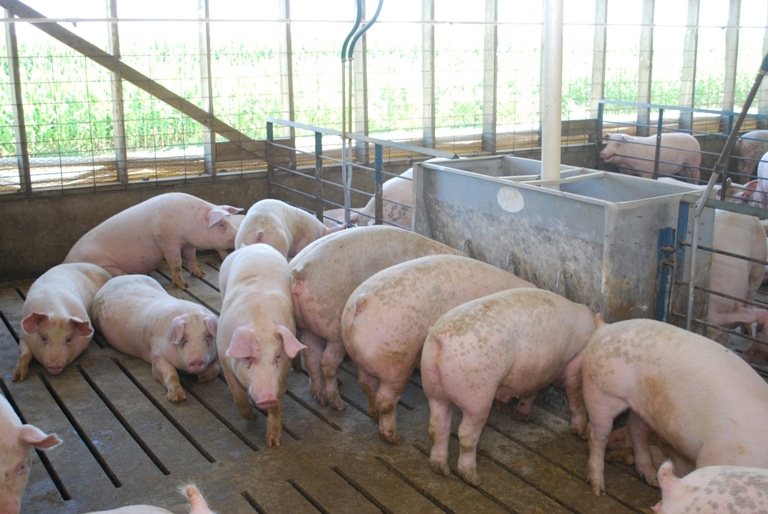Making Asphalt from Swine Manure
There were several excited pork producers clustered around a team of North Carolina A&T State University researchers at last month’s North American Manure Expo near Prairie du Sac, WI. Researcher Ellie Fini and business development specialist Mahour Parast had come to the event seeking producer input as well as a source of swine manure to support an asphalt manufacturing venture stemming from her recent research. Fini, a civil engineer, received National Science Foundation funding for the project and is now ready to move to the manufacturing phase.

There were several excited pork producers clustered around a team of North Carolina A&T State University researchers at last month’s North American Manure Expo near Prairie du Sac, WI. Researcher Ellie Fini and business development specialist Mahour Parast had come to the event seeking producer input as well as a source of swine manure to support an asphalt manufacturing venture stemming from her recent research. Fini, a civil engineer, received National Science Foundation funding for the project and is now ready to move to the manufacturing phase.
“The process involves thermo chemical-conversion of the manure into a bio-oil that can then be made into bio-binders or crack sealants for pavement,” she explains. “Approximately 5- 7% of pavement is binder, and millions of barrels of asphalt are used in America each year, so the potential market is huge.”
The asphalt industry has taken notice of her discovery. Fini’s found the use of the bio-binder has the potential to reduce asphalt pavement construction costs while improving its performance. The estimated cost of the swine-manure-based bio-binder production is estimated to be $0.54/gal., while a petroleum-based binder costs $2.00/gal.
After the initial research concluded, Fini conducted additional testing on the product for four years. “I didn�’t want to take this to market until I knew it would work,” she says. The project was considered sound enough that the National Science Foundation provided additional funding for Fini’s research team to help seek a location and suppliers for the manufacturing process.
Fini says swine manure is ideal for the process because it is easier to convert to long-chain hydrocarbons required to make the asphalt binder. Fresh manure works best, so Fini is seeking to find a manure source before determining the plant location. An end-product of the conversion process, called bio-char, is a high-value, pathogen-free nutrient that can still be used as a fertilizer.
Fini says a common question pork producers ask her is how the asphalt project competes with the value gained from applying the manure as fertilizer, especially in states like Minnesota, Iowa and Ohio.
"It should be noted that this bio-adhesive technology is not competing with the fertilizer value of the manure, she explains. "Instead it results in a condensed nutrient-carrying liquid which can be easier to pump and apply on land than manure slurry. The adhesive mainly sequesters carbon and leaves the majority of the nitrogen, phosphorus and potassium in the water and bio-char."
Fini has a background in the asphalt industry and has customers lined up for the finished asphalt product. She and her team are seeking a consistent source of swine manure now to support the manufacturing process. Fini is located at North Carolina State A&T State University, Greensboro.
Contact Fini at [email protected].
About the Author(s)
You May Also Like



